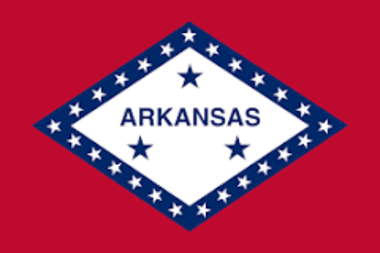Arkansas rule shows religious objections debate not over

Little Rock, Ark. (AP) — For critics of Arkansas' religious objections law, a new rule allowing counselors to refer clients elsewhere if they have a religious or moral objection to treating them shows the Pandora's box the majority-Republican Legislature opened last year. It also is a sign that the debate over the law that was upended in the final days of last year's legislative session is far from over.
A legislative panel last week approved the rule by the Board of Examiners and Counseling, which regulates 2,800 counselors and marriage and family therapists in the state. The rule will allow counselors and therapists to refer a patient to someone else over sincerely held "ethical, moral or religious principles" but only after careful consideration and consultation, and only if the counselor is unable to effectively serve the client. It also says counselors cannot abandon someone who seeks assistance.
The board's executive director has called the rule a way for the panel to address any complaints if such referrals occur and an attempt to head off a more far-reaching law like one recently enacted in Tennessee that allows counselors to refuse to treat patients based on the therapist's religious or personal beliefs.
"We're going to be policing our own profession, making sure folks are doing what they're supposed to be doing about those issues that intrude upon their ability to be with a client," Michael Loos told lawmakers.
But the rule is drawing criticism from several groups, including the American Counseling Association. The association, which represents more than 56,000 professional counselors, says the rule runs counter to its code of ethics.
"This (rule) blatantly circumvents that process and opens the door for discrimination," Richard Yep, the association's chief executive officer, said in a statement last week.
Though tame by comparison in tone and attention, the debate over the rule echoes last year's fight over a religious objections measure that was approved in the final days of the legislative session. Republican Gov. Asa Hutchinson asked lawmakers to revise the legislation in the wake of widespread criticism from groups like the Human Rights Campaign and businesses such as Bentonville-based Wal-Mart, who said the initial version was discriminatory against the lesbian, gay, bisexual and transgender community.
Hutchinson has indicated little willingness to wade back into the issue when lawmakers return to the Capitol. The two lawmakers behind the religious objections legislation — Sen. Bart Hester and Rep. Bob Ballinger — have said they're not looking to reopen debate over the law either.
But they may not get much say in the matter, with other fights looming on LGBT rights that could wade into similar territory on religious objections. Hutchinson earlier this year recommended public schools in his state disregard an Obama administration directive that they must permit transgender students to use bathrooms and locker rooms consistent with their gender identity, and has said he expects the issue to come up during next year's session. Attorney General Leslie Rutledge, a Republican, is among a number of Republican attorneys general who have filed a lawsuit over the bathroom directive.
The state has also asked the state Supreme Court to strike down Fayetteville ordinance that bans discrimination based on sexual orientation or gender identity, saying it violates a state law aimed at preventing local protections for LGBT people.
Opponents of the religious objections law face an uphill fight in the Legislature to either scale back the religious objections law or add protections for LGBT people to the state's civil rights law. But they're hoping that the attention Arkansas receives for such measures could help make the case for revisiting the issue.
"I just think, for the image of Arkansas, it makes it seem as though we create rules here that are going to be unfriendly to members of the LGBT community and that's problematic for the image of our state," Democratic Rep. Clarke Tucker of Little Rock said.
By Andrew DeMillo, Associated Press. Copyright 2016 The Associated Press. All rights reserved. This material may not be published, broadcast, rewritten or redistributed.
The Gayly – July 16, 2016 @ 3:10 p.m.





